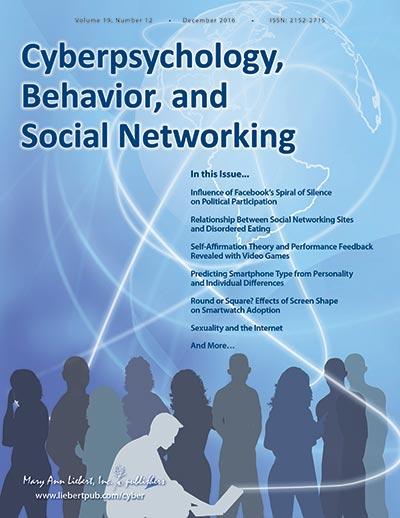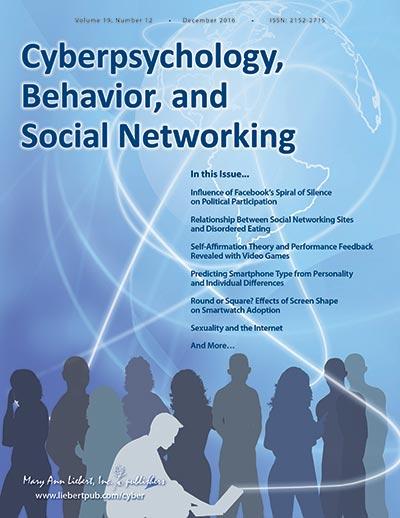
is an authoritative peer-reviewed journal published monthly online with Open Access options and in print that explores the psychological and social issues surrounding… view more
Credit: ©Mary Ann Liebert, Inc., publishers
New Rochelle, NY, December 20, 2016–A new study shows that regular use of social networking such as Facebook can negatively affect your emotional well-being and satisfaction with life. But you don't have to quit Facebook altogether; simply changing your social networking behavior and taking an occasional break from Facebook may lift your spirits, according to the study published in Cyberpsychology, Behavior, and Social Networking, a peer-reviewed journal from Mary Ann Liebert, Inc., publishers. The article is available free on the Cyberpsychology, Behavior, and Social Networking website until January 18, 2017.
In the article "The Facebook Experiment: Quitting Facebook Leads to Higher Levels of Well-Being," Morten Tromholt, University of Copenhagen, Denmark, describes an experiment in which he gave more than 1,000 participants a pretest and then randomly assigned them to one of two conditions: continue using Facebook as usual; or stop using Facebook for a week. He reports on the negative effects of Facebook use on overall well-being, based on life satisfaction and emotions. After one week without Facebook, the treatment group showed statistically significant improvement in well-being, with gains varying depending on the amount of time they previously spent on Facebook and whether or not they were passive users and tended to envy others on Facebook.
"Confirming previous research, this study found that 'lurking' on Facebook may cause negative emotions. However, on the bright side, as previous studies have shown, actively connecting with close friends, whether in real life or on Facebook, may actually increase one's sense of well-being," says Editor-in-Chief Brenda K. Wiederhold, PhD, MBA, BCB, BCN, Interactive Media Institute, San Diego, California and Virtual Reality Medical Institute, Brussels, Belgium.
###
About the Journal
Cyberpsychology, Behavior, and Social Networking is an authoritative peer-reviewed journal published monthly online with Open Access options and in print that explores the psychological and social issues surrounding the Internet and interactive technologies. Complete tables of contents and a sample issue may be viewed on the Cyberpsychology, Behavior, and Social Networking website.
About the Publisher
Mary Ann Liebert, Inc., publishers is a privately held, fully integrated media company known for establishing authoritative peer-reviewed journals in many promising areas of science and biomedical research, including Games for Health Journal, Telemedicine and e-Health, and Journal of Child and Adolescent Psychopharmacology. Its biotechnology trade magazine, GEN (Genetic Engineering & Biotechnology News), was the first in its field and is today the industry's most widely read publication worldwide. A complete list of the firm's 80 journals, books, and newsmagazines is available on the Mary Ann Liebert, Inc., publishers website.
Media Contact
Kathryn Ryan
[email protected]
914-740-2100
@LiebertPub
http://www.liebertpub.com
############
Story Source: Materials provided by Scienmag





